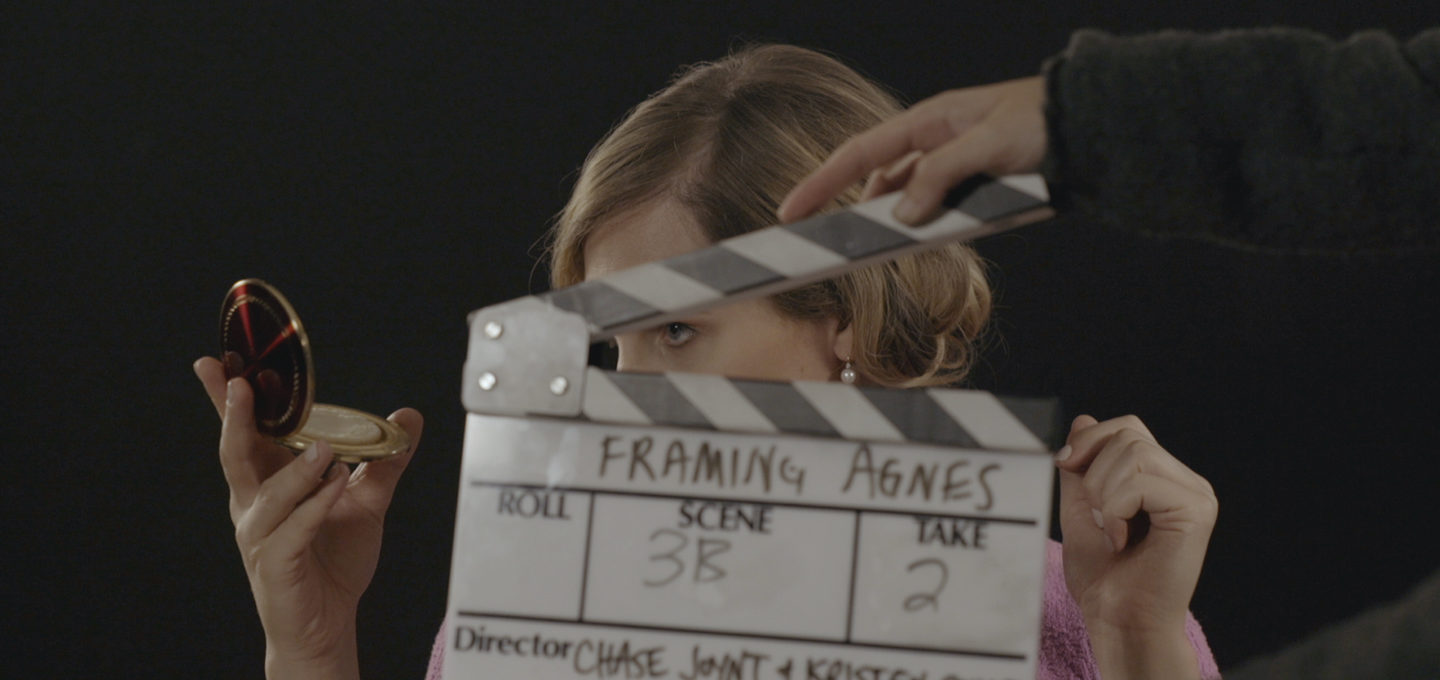Framing Agnes is a short film by co-directors Chase Joynt and Kristen Schilt that introduces us to historic spirits of the trans community. The film will be shown as part of the Tribeca Film Festival April 28 and 29, and May 1 and 4.
Joynt, a filmmaker, and Schilt, a sociologist, began their collaboration with the intention of telling the story of Agnes Torres, a trans woman who received sex reassignment surgery in the 1960s, and became a famous case in sociologist Harold Garfinkel’s published studies of sex and gender of that era. Given access to Garfinkel’s files, Joynt and Schilt found numerous other cases of gender-nonconforming individuals the sociologist had interviewed without publishing research about them. In Framing Agnes, these previously-silenced voices become a cast of living trans pioneers with the help of some of talented actors and artists.
The format of the historical portions of the film is in the style of an interview Mike Wallace did with the first widely-known American transsexual Christine Jorgensen in 1959, complete with black and white color tone and television framing. Joynt plays Harold Garfinkel as a grey-suited fifties man dispassionately querying his “subjects.” Performance artist Zackary Drucker plays Agnes; Angelica Ross (Pose) plays another unnamed trans woman. Poet Max Wolf Valerio and filmmaker Silas Howard play two trans men Garfinkel interviewed. The film shifts between the historical perspective of Agnes and the other interview subjects and modern conversations with the actors and artists portraying them as they tell their stories of being trans and share impressions of their involvement in the production.
Particularly striking from a PopTheology perspective is Angelica Ross. In the modern footage, Ross discusses how, coming from a conservative Christian background, there was no language for being trans, and that even homosexuality was a taboo subject. That search for language seems to be a central theme of the historical segments as well. In the 50s and 60s, gender-nonconforming people had no language for who they were, faced disbelief and hostility from the medical and psychiatric communities, and yet somehow, managed to live their lives with dignity and integrity.
The most significant transformation the film undertakes is not in portraying changes of gender, but in the transformation of these exceptional souls from “subjects” of Garfinkel’s research to living human beings.
Check here for showings of Framing Agnes at the Tribeca Film Festival.
